Prof. LING San (Executive Committee member, Global MOOC Alliance; Deputy President and Provost, Nanyang Technological University) gave an opening remark, titled: “Remaking Learning at NTU Singapore“, for the Online Education Dialogue on January 26, 2021.
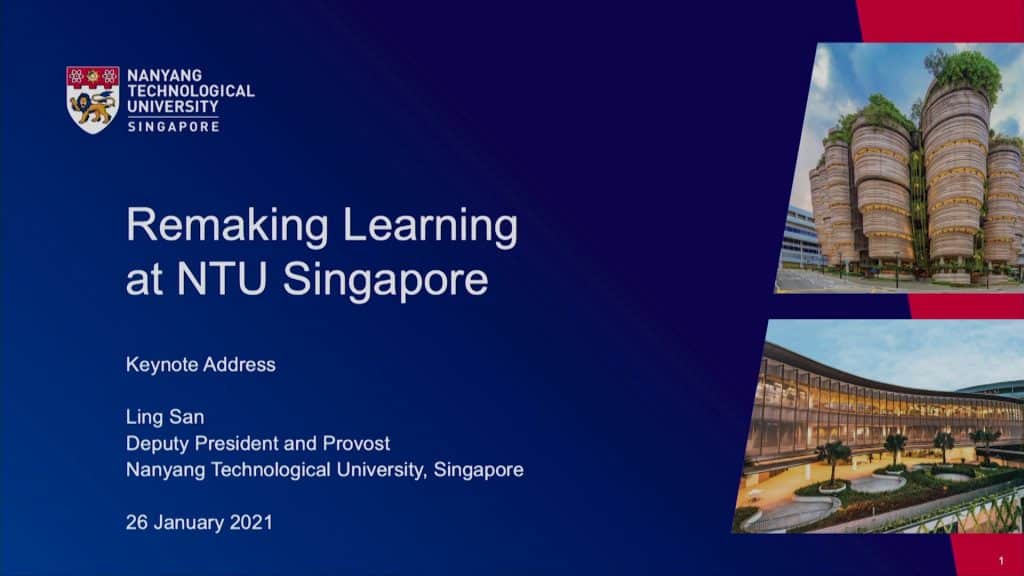
Good morning, good afternoon or good evening. Whatever the time might be where you are, so let me begin by thanking the organizers for this kind of invitation. It is my pleasure to share with you what has been and what will be happening to education and to Singapore. So yesterday, we announced an ambitious and exciting five-year strategic plan called NTU2025 for the university that covers education, research, innovation, and a building of the campus community.
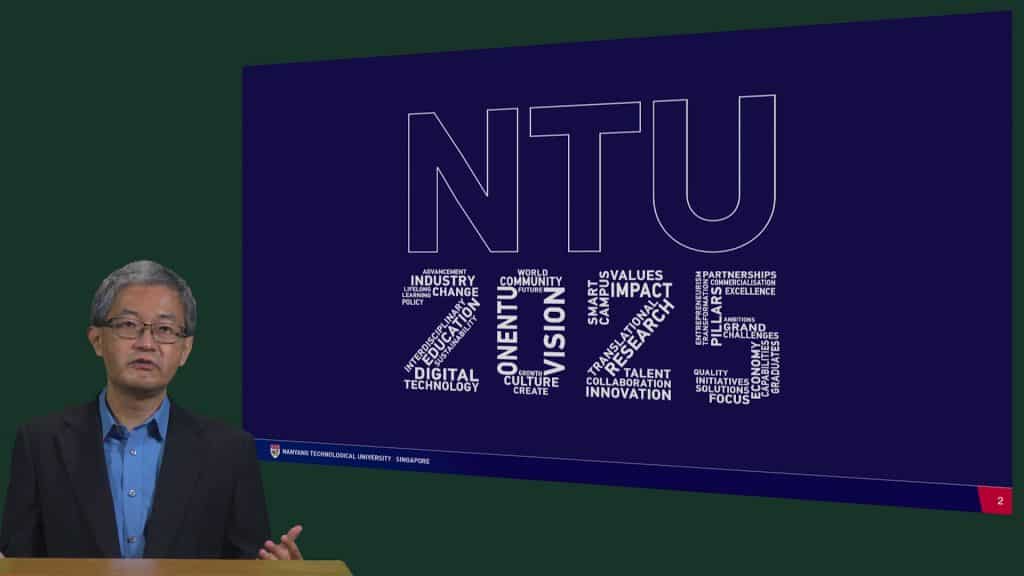
Over the next five years, for education, our focus will be on the preparation of future-ready graduates, well equipped with what we call the three Cs: character, competence, and cognitive agility. Well, character and competence are obvious, but why cognitive agility? So the world has become increasingly vocal, volatile, uncertain, complex, and ambiguous. Accentuated by Industry 4.0, but also COVID-19 pandemic, many jobs have been displaced and many more jobs will be disrupted. The only way for a person to stay relevant is to be able to continually learn and learn, relearn. Stay open-minded to new ideas, knowledge development, and at the same time be able to respond nimbly with competence. Now, all this requires cognitive agility.
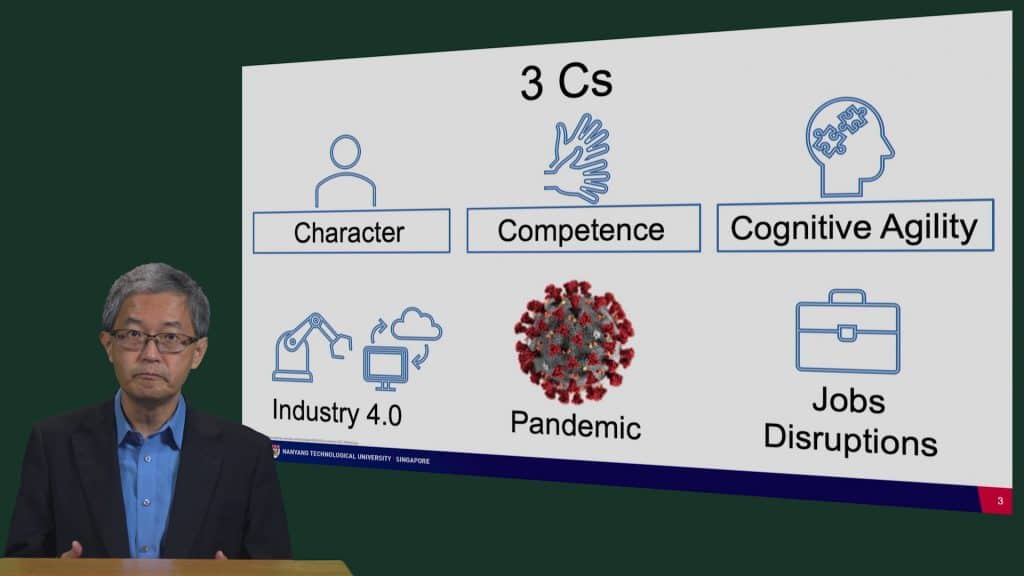
At NTU Singapore, the journey of remaking education actually began about a decade ago. With Imperial College London, we established a new medical school and we decided from day one that education at the medical school would be delivered through the flipped classroom that marries technology-enhanced learning (TEL) and team-based learning (TBL).
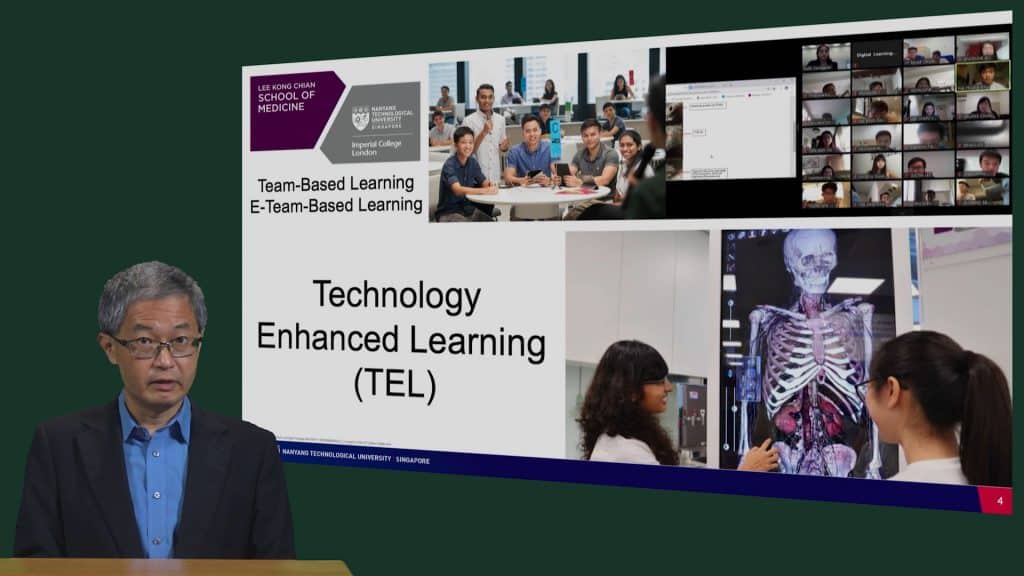
The medical students attend no lectures but learn from “Professor iPad” instead. Then in the classroom, they are split into teams for deeper learning — from one another, with one another, and even for one another — guided by a team of facilitators. Several batches of graduates are now working in our public healthcare institutions, which are pleased with the performance of these pioneer graduates. Today, these pedagogies have been adopted much more broadly within NTU. More than 85 percent of our courses now are enhanced by technology in one way or another, some more, some less. In March last year, the wide adoption of TEL actually allowed us to switch very swiftly to online teaching within a couple of weeks. When COVID-19 hit and there were minimal disruptions. More than 90 percent of our courses went fully online with little difficulty, and the rest were lab classes, sports classes, or supervised independence learning. In our medical school, the team-based learning actually went fully online at very short notice, and the students were actually very glad that they could continue with a TBL experience despite our circuit breaker.
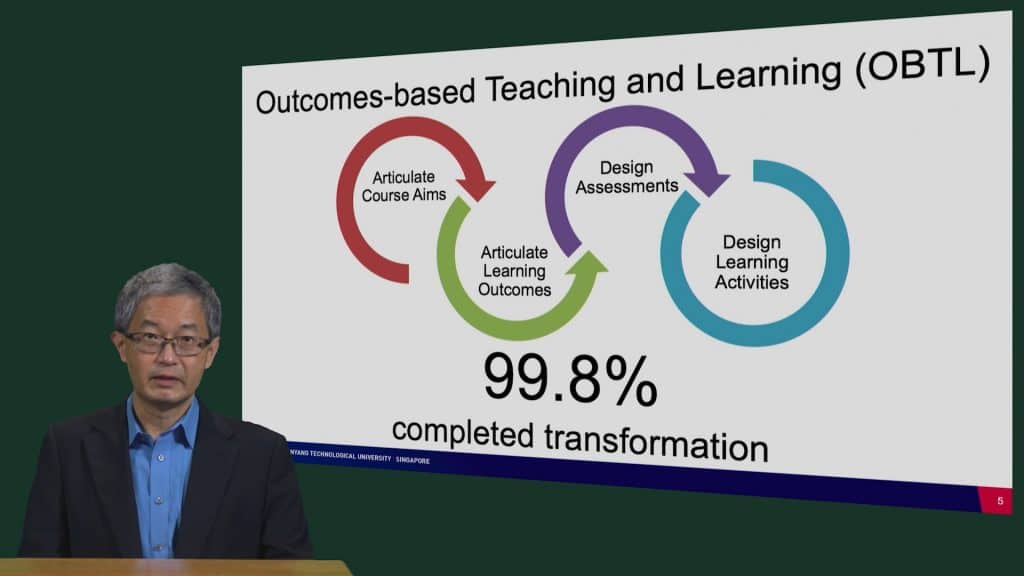
We also introduced Outcomes-based Teaching and Learning (OBTL) by first clearly identifying the desired learning outcomes for a course; within that, those objectives inform us and guide us in the design of the assessment as well as the learning activities. Now this way, the intended learning outcomes are much more likely to be achieved, and the course is designed and delivered in a more targeted and effective manner.
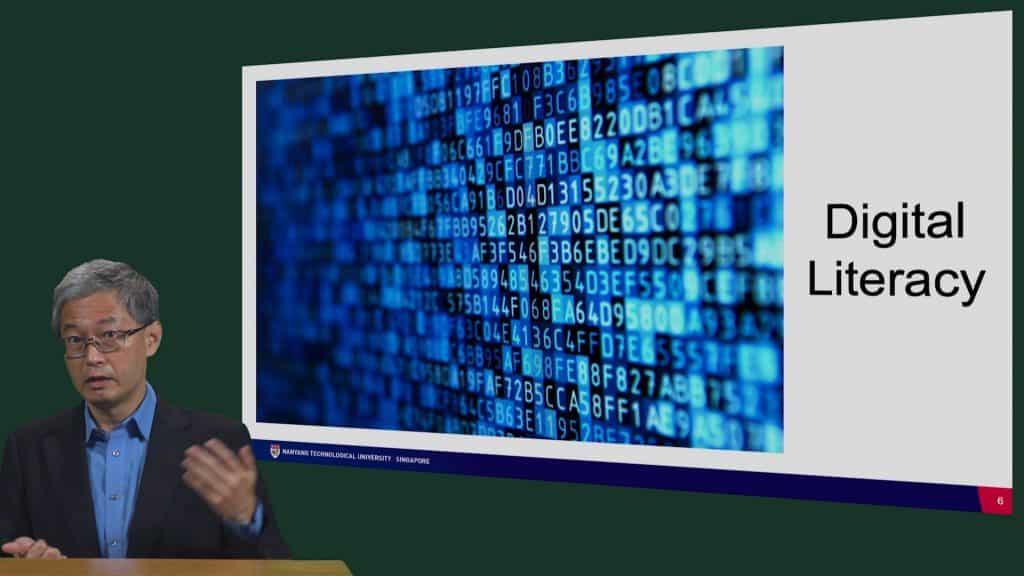
When it became clear that basic understanding and appreciation of the digital world has become indispensable for living and working in a modern world, we introduce compulsory digital literacy courses for all undergraduates back in 2018, helping them develop a basic grasp of computational thinking, data science, cybersecurity, and A.I., as well as related law, ethics, and policy. Yes, even students in English or philosophy major have to fulfil this requirement.
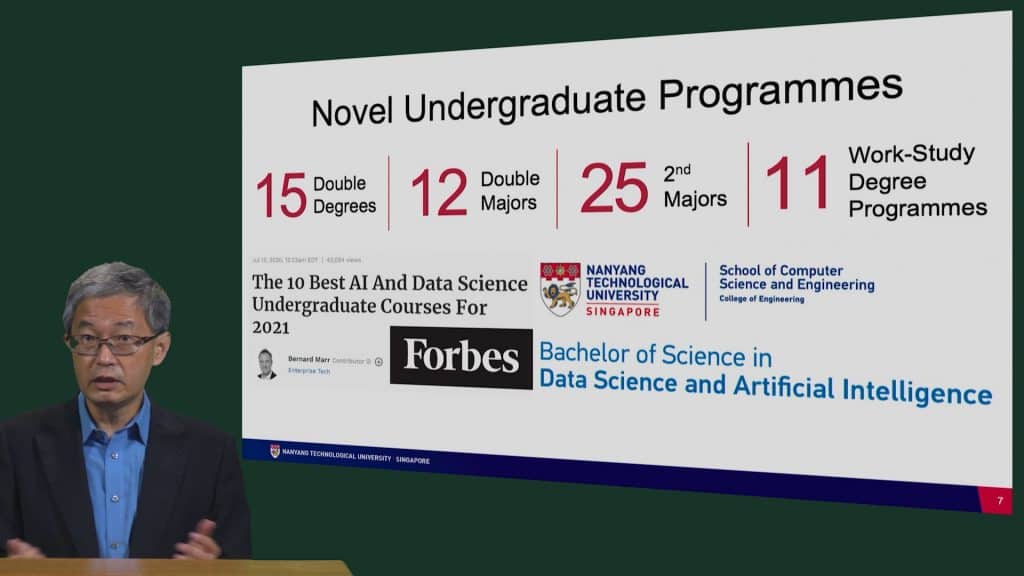
We also increased our curricular offerings so that students with interest in more than one discipline have more options to satisfy their curiosity, for example, double degree programs, double majors of second major or other novel interdisciplinary offerings. So, for example, recognizing the growing demand for expertise and in A.I. and data science in 2018, our computer scientists and mathematicians jointly launched a new major in A.I. and data science. This program focuses very strongly on both theory and practice. And it has become one of the most sought after programs ever since. In July last year, this program was among the top 10 undergraduate programs in data science and A.I. recognized by Forbes.
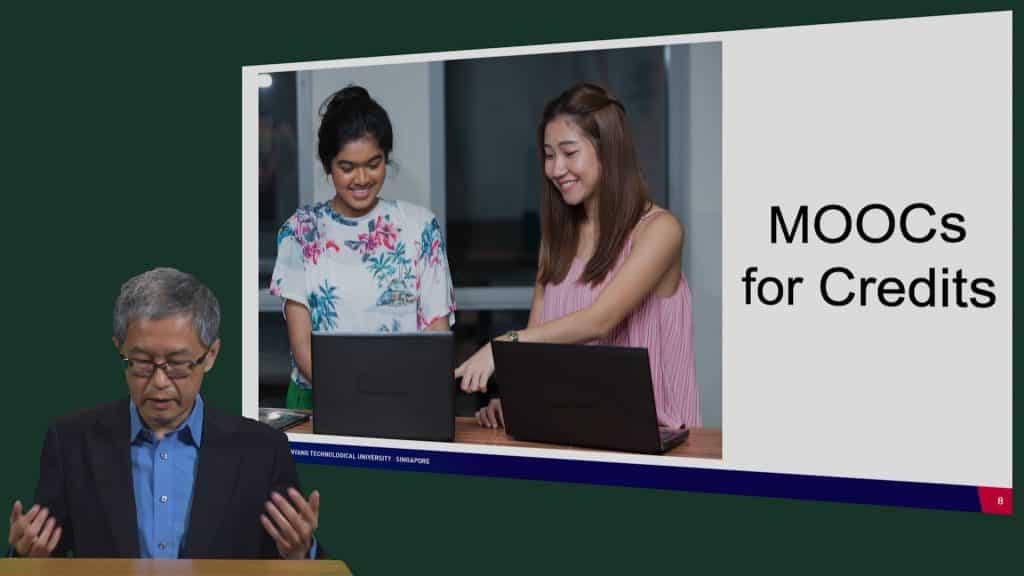
Also in mid-2020 to encourage students to develop skills to become independent, self-driven, lifelong learners; we decided to allow every undergraduate to use MOOCs for up to 10 percent of their graduation requirements. Within one semester, about 14,000 or 60 percent of our undergraduates have actually completed at least one MOOC each. We’re very pleased with this outcome.
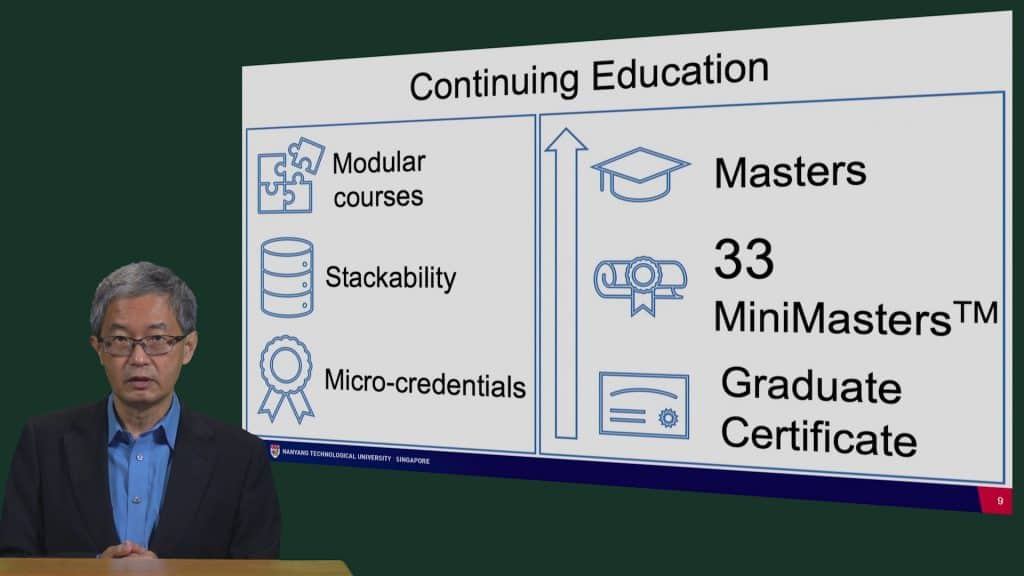
But the remaking of learning. It’s not just about undergraduates. So, for example, in continuing education, we introduced about half a year ago, MiniMasters, a stackable micro-credential that can be eventually built into a Masters. Many of our continuing education courses and programs are actually jointly curated and also delivered with our industry partners or professional bodies such as the Singapore Computer Society and Facebook. More and more of these courses can be expected to be delivered either fully online or through the flipped classroom pedagogy.
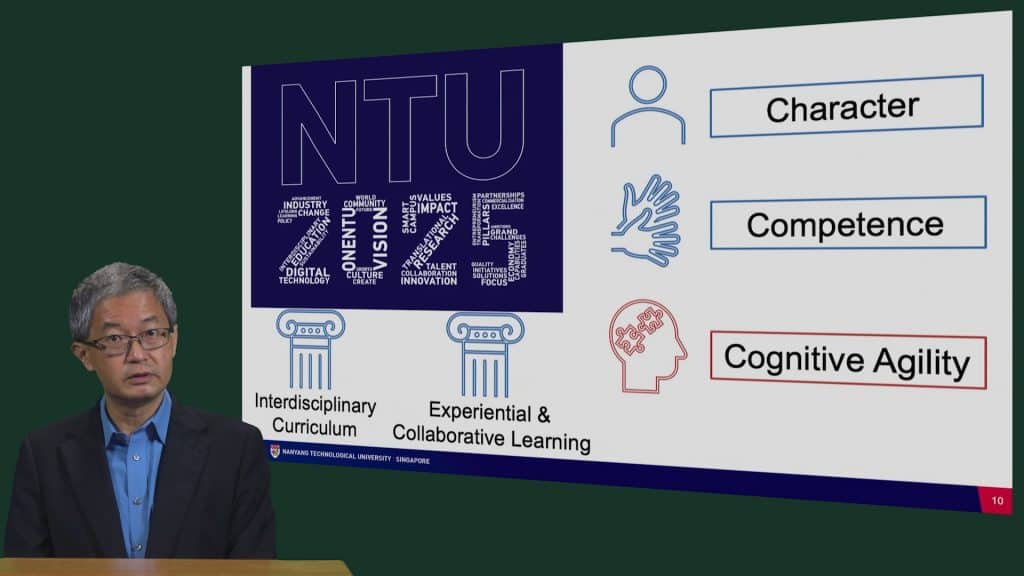
Now, let me come back to the future: NTU2025. So to help us reach our goal of producing cognitively agile graduates, our education will actually focus on two pillars interdisciplinary curriculum, as well as experiential and collaborative learning.
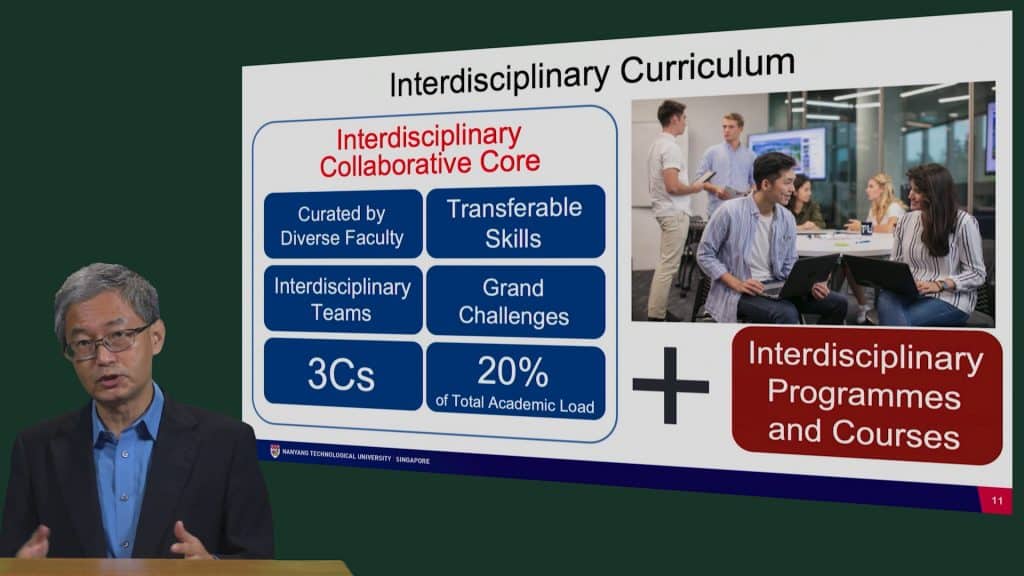
From August this year, all undergraduate students matriculated into NTU Singapore will undergo an interdisciplinary collaborative core curriculum that makes up about 20 percent of their total academic load. This is a set of courses that spans from transferable skills such as ethics, communication and digital literacy to grand challenges like sustainability, healthcare, and science and technology for humanity, which are all interdisciplinary in nature. Students from engineering, humanities, science, business will come together in the same course to study together. Each of these courses will be curated and delivered jointly by a team of faculty drawn from a very broad set of disciplines. And the students who also work in multidisciplinary teams on projects. So the experience will be truly interdisciplinary in all senses of the word. Graduate students will also have more options of interdisciplinary programs for their research, such as neuroscience and sustainability.
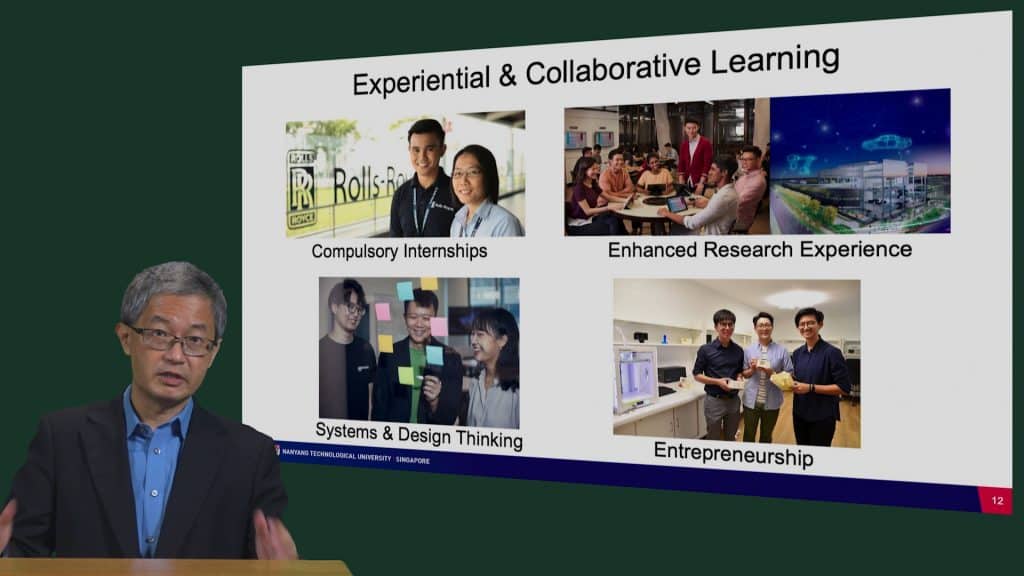
In addition, every undergraduate student matriculated from this August onwards must actually undertake a compulsory internship as part of their study program, and this is to enhance their learning through real-world experience. Students were keen to explore a field more deeply, have a lot more options, they can work on interdisciplinary team projects, they can join one of the labs that we have set up jointly with our industry partners to conduct research, or they can even take PhD courses. A minor in Systems and Design Thinking will also be made available to students later on in this five-year plan, and this is to foster innovation, collaboration as well as creativity. More opportunities for learning about entrepreneurship, including a second major, would also be made available from this August onwards. We want to ramp up our efforts to nurture innovators and entrepreneurs. Now, some of these learning opportunities will also be extended as an option to graduate students such as internships as well as entrepreneurship.
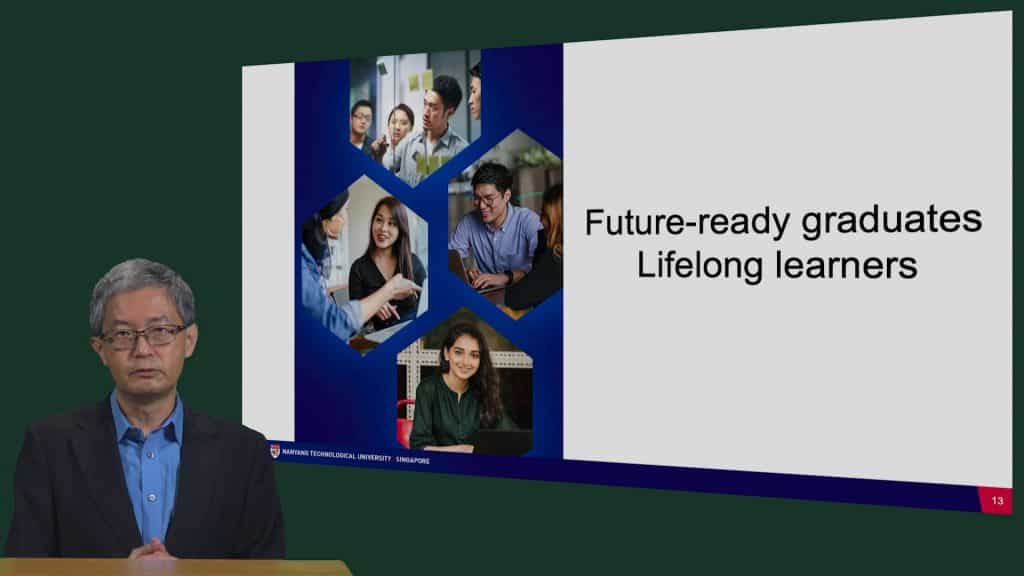
It is a hope that with these initiatives within the twin pillars of interdisciplinary curriculum and experiential and collaborative learning, we will be able to produce graduates who will be ready for the future and who will be effective, self-driven, independent lifelong learners. Thank you.
This presentation was a part of the Online Education Dialogue: “Revitalizing Challenge-Based Learning in Higher Education – from in-person to online” on January 26, 2021, and was transcripted by Mr. Enoch Wong (Assistant Secretary-General of the Global MOOC Alliance Secretariat). Prof. LING San and NTU Singapore are the owners of above content. All content used falls under the remits of Fair Use, but if any content owners would like to dispute this I will not hesitate to immediately remove said content. It is not my intent to in any way infringe on their content ownership. If you happen to find your work in this website please let me know and I will be glad to credit you. Email: enoch@tsinghua.edu.cn
